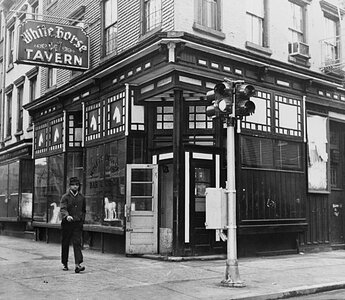donbosco
Legend of ZZL
- Messages
- 6,670
Motto
BY LANGSTON HUGHESI play it cool
And dig all jive
That’s the reason
I stay alive.
My motto,
As I live and learn,
is:
Dig And Be Dug
In Return.
Follow along with the video below to see how to install our site as a web app on your home screen.
Note: This feature may not be available in some browsers.
Do not go gentle into that good night,
Old age should burn and rave at close of day;
Rage, rage against the dying of the light.
Though wise men at their end know dark is right, Because their words had forked no lightning they
Do not go gentle into that good night.
Good men, the last wave by, crying how bright Their frail deeds might have danced in a green bay,
Rage, rage against the dying of the light.
Wild men who caught and sang the sun in flight, And learn, too late, they grieved it on its way,
Do not go gentle into that good night.
Grave men, near death, who see with blinding sight
Blind eyes could blaze like meteors and be gay,
Rage, rage against the dying of the light.
And you, my father, there on the sad height,
Curse, bless, me now with your fierce tears, I pray.
Do not go gentle into that good night.
Rage, rage against the dying of the light.

That’s a great catch. I’ve seen Synecdoche exactly twice, it’s incredible. About 10 years apart. Maybe I’m due, but it drags me to the depths and ruins me every time. Especially now that Philip Seymour Hoffman is gone.This is interesting. This poem is quoted in one of my favorite movies, Synecdoche, New York, but the translation in the movie reads
Whoever has no house now, will never have one.
Whoever is alone will stay alone,
will sit, read, write long letters through the evening,
and wander the boulevards, up and down,
restlessly, while the dry leaves are blowing.
I'm not sure if that's a dramatic difference or not. Translation in interesting. The idea of having no house, I think, is different from the idea of being homeless. Certainly if you think of "house" as the name and identity of a family or a dynasty. Something to think about...
That’s a great catch. I’ve seen Synecdoche exactly twice, it’s incredible. About 10 years apart. Maybe I’m due, but it drags me to the depths and ruins me every time. Especially now that Philip Seymour Hoffman is gone.
I couldn't say how many times I've watched it, but I couldn't count it on my fingers. I see (and feel like I lean) something new every time I watch it. I envy you having only seen it twice, you're in for some treats on your next viewing, although I suspect I will be, too..That’s a great catch. I’ve seen Synecdoche exactly twice, it’s incredible. About 10 years apart. Maybe I’m due, but it drags me to the depths and ruins me every time. Especially now that Philip Seymour Hoffman is gone.
